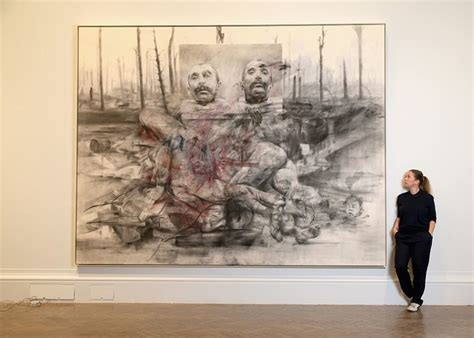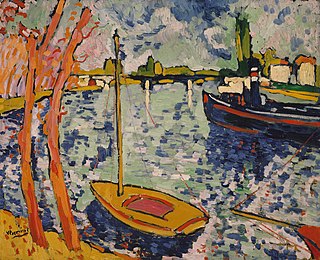A Quote by Lady Gaga
It's sort of like my past is an unfinished painting, and as the artist of that painting, I must fill in all the ugly holes and make it beautiful again.
Related Quotes
Clinical psychology tells us arguably that trauma is the ultimate killer.Memories r not recycled like atoms and particles in quantum physics. they can be lost forever. It’s sort of like my past is an unfinished painting and as the artist of that painting,I must fill in all the ugly holes and make it beautiful again.
I bought a painting in Madrid on my first trip there too and a lot of people say, 'Well it's not the greatest painting' and I say, 'It is to me.' OK, you can look at a beautiful painting and say, 'That's beautiful' but to me, it feels warmer to fill my home with pictures of friends and family and paintings of places I've gone. That's what I want to come home to.
All that stuff about flatness - it's this idea that painting is a specialized discipline and that modernist painting increasingly refers to painting and is refining the laws of painting. But who cares about painting? What we care about is that the planet is heating up, species are disappearing, there's war, and there are beautiful girls here in Brooklyn on the avenue and there's food and flowers.
I'm not anti conceptual art. I don't think painting must be revived, exactly. Art reflects life, and our lives are full of algorithms, so a lot of people are going to want to make art that's like an algorithm. But my language is painting, and painting is the opposite of that. There's something primal about it. It's innate, the need to make marks. That's why, when you're a child, you scribble.
My room is dominated by the huge painting, which is a copy of 'The Violation' by the Belgian surrealist Paul Delvaux. The original was destroyed during the Blitz in 1940, and I commissioned an artist I know, Brigid Marlin, to make a copy from a photograph. I never stop looking at this painting and its mysterious and beautiful women.
Why was the painting made? What ideas of the artist can we sense? Can the personality and sensitivity of the artist be felt when studying the work? What is the artist telling us about his or her feelings about the subject? What response do I get from the message of the artist? Do I know the artist better because of the painting?
In fine arts, when you make a painting, it's just a painting. But if you make a painting in the entertainment industry, it can be an album cover or a t-shirt or a logo. I like that entertainment has this usefulness - that it's ultimately trying to make a bunch of people feel something, and to think about life and be able to use things that were so simple and direct but potentially have a really powerful effect.
Like commercial stuff is sort of cheap and disposable and fun and can be sort of interesting in many ways. I love being in popular culture and existing in the evolution of popular culture. But it's so different from painting, and it's so different from that sort of slow, contemplative, gradual process that painting is.

































